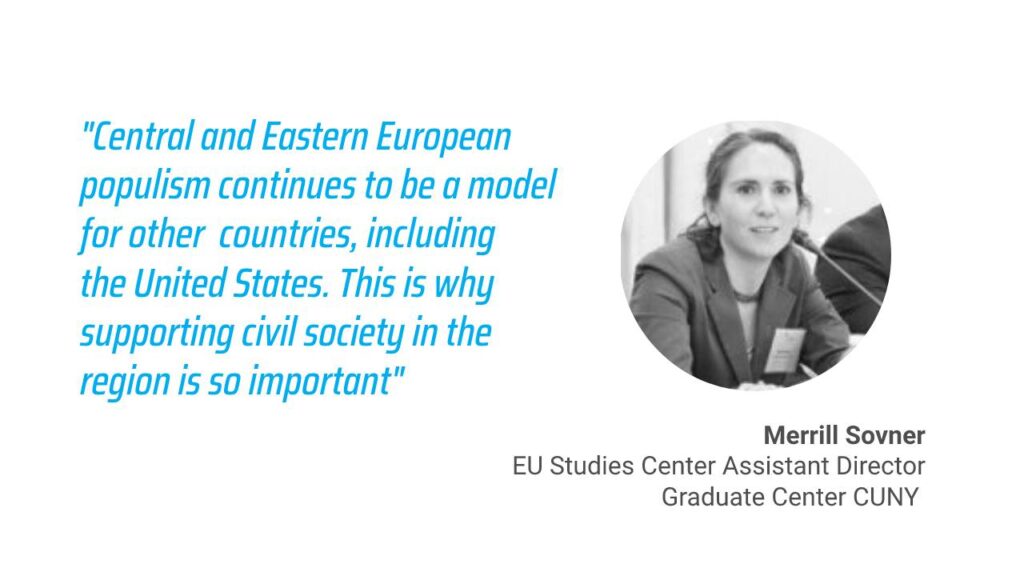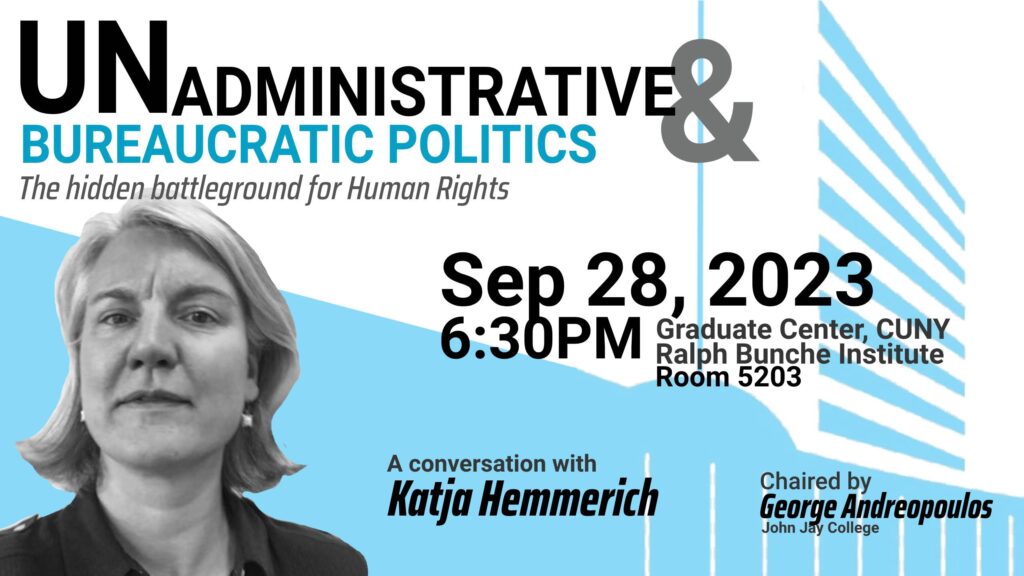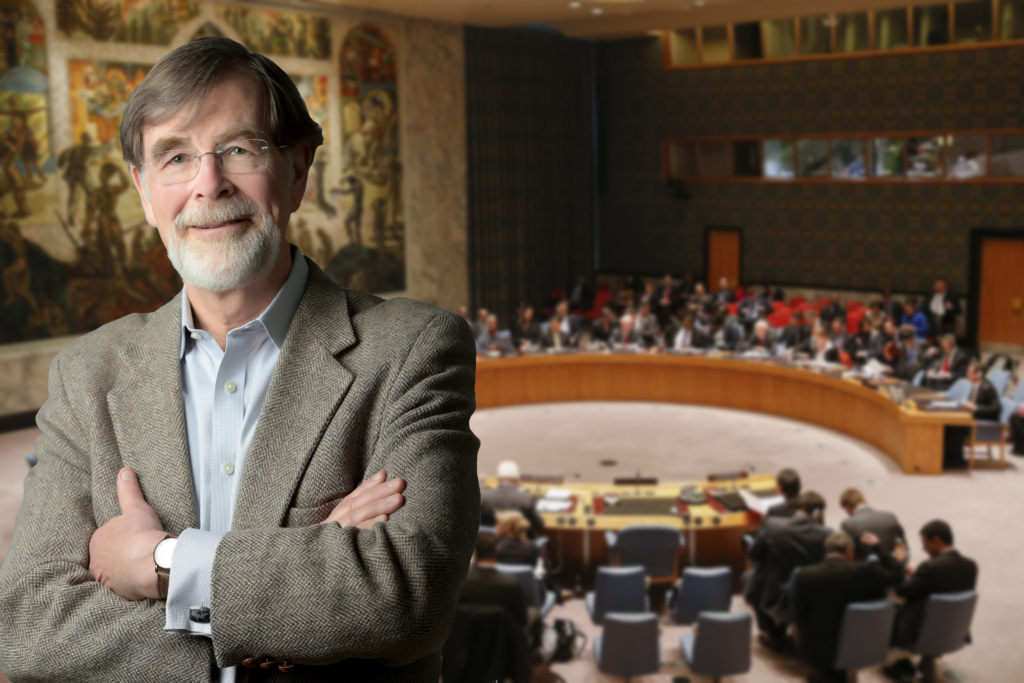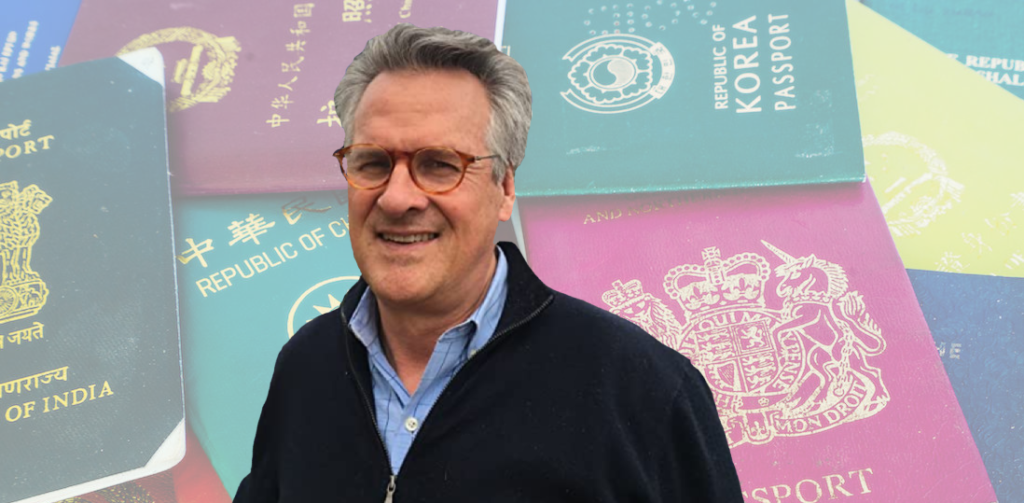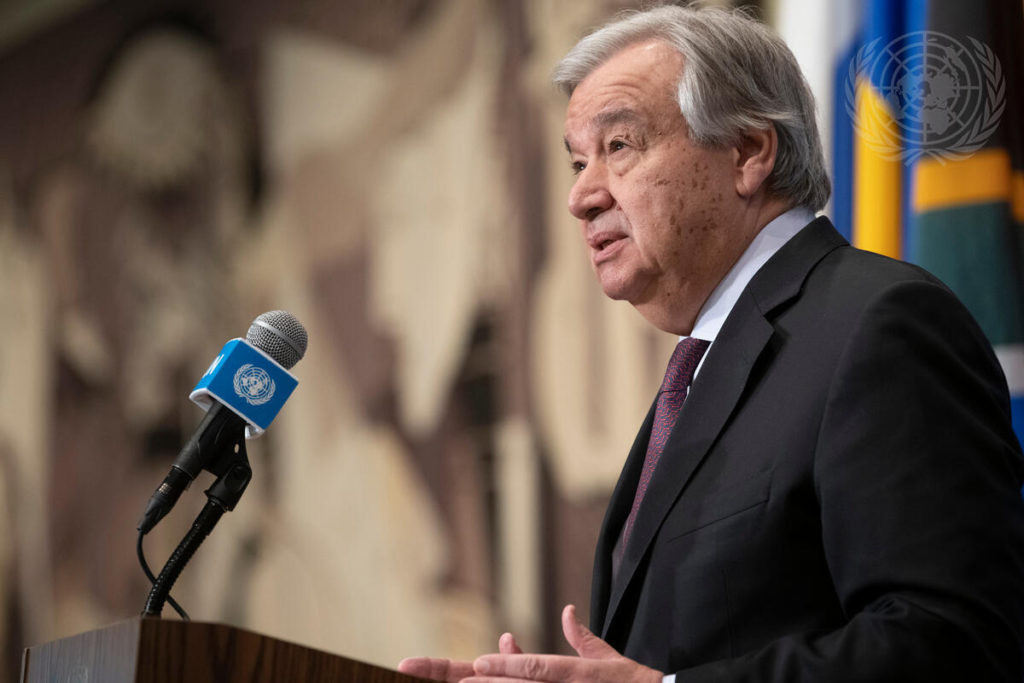In this episode of International Horizons, RBI director John Torpey interviewed Jayati Ghosh, professor of economics at the University of Massachusetts at Amherst, about different
Please check this article were EU Studies Center Assistant Director is quoted.
Join us for a conversation with Katja Hemmerich, expert on the United Nations. The session will be chaired by HRH steering committee member and Professor
One year after the launch of Russia’s invasion of Ukraine, World Monuments Fund (WMF) and the J. Paul Getty Trust held the 2023 Paul Mellon
Originally Published in The Conversation April 8, 2022 A clearly anguished Ukrainian President Volodymyr Zelenskyy on April 5, 2022, castigated the U.N. Security Council members
Ralph Bunche Director John Torpey contributed this essay, “Rethinking Mobility Under Duress,” for an online forum on Mobility Without Membership: Do We Need Special Passports for
Focusing on the complex histories of Indigenous-colonial relations, Profs. Margaret Jacobs, Claudio Saunt, and Justin de Leon offer fresh perspectives on violent and non-violent forms of extinguishing Indigenous land and culture in North America, and on returning stolen lands to their rightful Indigenous guardians. Chair: Dr Mikal Eckstrom.
Originally published by Friedrich-Ebert-Stiftung on 6/6/2021, found here.Author: Thomas G. Weiss (Presidential Professor of Political Science, CUNY Graduate Center) António Guterres soon will be recrowned
Even the most casual observer of international affairs might reasonably think that the system for allocating people to countries – the institution of citizenship – is in disarray and prone to producing the worst possible outcomes. The Mediterranean and the southern US border both provide ongoing examples of human tragedy arising from the norm that each person in the world has one and only one true home, the place where they belong and from which long-term departure is anomalous. This norm emerged from the period following the First World War, when the European land empires collapsed and a great re-sorting of populations, borders, and international law ensued. A good deal of this re-sorting had to do with avoiding confusion about male citizens’ military obligations; if push came to bloody shove, countries and soldiers had to know where their loyalties lay.
It has often been said of the coronavirus pandemic that “we are all in this together.” Yet this claim seems manifestly misleading in regard to the economic winners and losers, two groups that consist disproportionately of those who produce and sell certain kinds of “tech” products and services, on the one hand, and those who do not, on the other. More specifically, available data indicates that the tech elite–the founders and largest shareholders of certain tech companies–have in fact profited handsomely from the crisis and the turn to their products and services that has occurred in response. This paper addresses the extent to which “Big Tech” and the tech elite have benefited financially from the coronavirus crisis, as well as the degree to which they have sought to give back some of their gains in order to help the broader population that has suffered from the crisis. In order to address these issues, we have gathered data on the stock prices, corporate revenues, and profits of the Big Tech firms and on the incomes and wealth of the tech elite, and we compare these winnings with data on their philanthropic giving during the pandemic year of 2020. We note that tax policies undergird both the explosion of tech profits and the growth of philanthropic giving in response to the crisis. We find, perhaps not surprisingly, that the winners among the tech elite have not “been in it together” with the rest of us, but instead have benefited dramatically from the pandemic without necessarily giving large amounts of money relative to their wealth or orchestrating their philanthropy in such a way as to effectively mitigate the suffering of ordinary people. We thus argue that tax reforms are necessary to ensure that more of the social product comes under the control of the public treasury and that it is distributed according to processes of democratic decision-making rather than by way of taxpayer-subsidized charitable giving.


